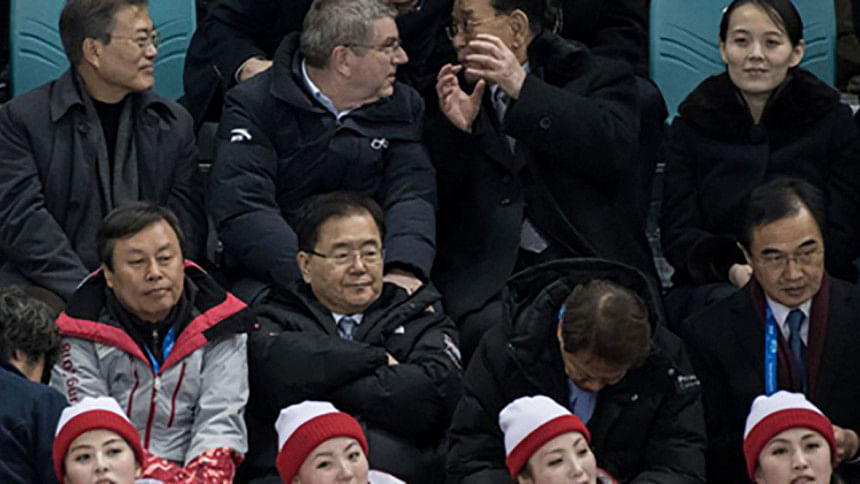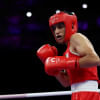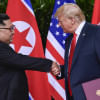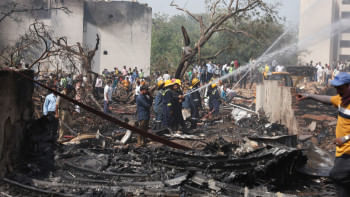No concerns over NKorea 'hijack': Olympics chief

Olympics chief Thomas Bach on Monday dismissed concerns that North Korea has tried to "hijack" the Winter Games for political purposes, as officials revealed he will visit the isolated country after the tournament in South Korea.
Bach said he regarded North Korea's participation purely in sporting terms despite the rapid round of diplomacy between the two Koreas during the opening days of the Games.
"This is about sport and this the IOC made very clear," Bach told AFP in an interview. "This is about the role of sport to build bridges, to open doors and nothing more.
"It's just a symbol for sport and it's a symbol for the fact that when you go over these bridges you can come to a positive result."
Brokering North Korea's involvement has been a proud achievement for Bach's International Olympic Committee, as the two Koreas marched together at the opening ceremony and formed a unified team in the women's ice hockey.
It has also set the stage for a period of intense reconciliation efforts, including the visit of Kim Jong Un's sister Kim Yo Jong who delivered an invitation for South Korean President Moon Jae-in to visit North Korea.
However, some South Koreans are sceptical about the sudden rapprochement, while US Vice-President Mike Pence said North Korea was trying to "hijack the message and imagery" of the Olympics.
North Korea's U-turn after months of warlike rhetoric and weapons tests prompted fears among some countries about sending athletes to Pyeongchang, and questions about whether the Games should be moved somewhere safer.
Bach's spokesman Mark Adams said the IOC president would visit North Korea after the Games, although no date has been set. The visit was agreed as part of the deal for North Korea to take part in the Olympics, he said.
'Message of peace'
In what has been called a propaganda coup, North Korea has launched a major charm offensive at the Games, where it has a delegation of more than 500 -- including their large, all-female cheering squad -- supporting 22 athletes.
Bach had South Korea's Moon on his left and the high-level North Korean delegation on his right when the two Koreas played their first ever Olympic fixture together, in the women's ice hockey tournament on Saturday.
He said the IOC was happy to play the role of peace-maker -- but that it was up to politicians whether to take advantage.
"Sport cannot create peace but sport can build bridges. We can open doors, we can show that dialogue can lead to a positive result as we have shown there with our discussions and negotiations over the years," Bach said.
"This is what we can do and there we'll always be very restricted to sports matters. All the rest, politicians have to do. It's up to them whether they then use this momentum for their talks."
Bach also revealed that he wasn't sure that the two Koreas would go ahead with their joint march until they finally walked into Pyeongchang Olympic Stadium for Friday's opening ceremony.
"We always said we're going to believe it the moment we see them really coming in," he said.
"Seeing this moment happening was great emotion and great joy to be able to send this message of understanding, of peace, this Olympic message from Korea to the world.
"It's of particular importance that it's coming from the Korean peninsula, where we have these high political tensions."

 For all latest news, follow The Daily Star's Google News channel.
For all latest news, follow The Daily Star's Google News channel. 








Comments